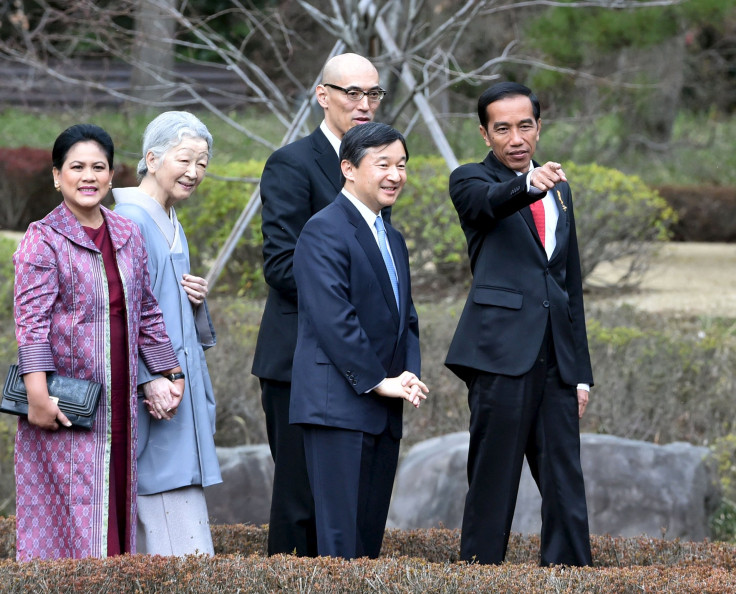Indonesia's Joko Widodo Says A Chinese Claim In South China Sea Has No Legal Basis

Indonesian President Joko Widodo said in an interview published Monday in Japanese newspaper Yomiuri that his country will remain the “honest broker” in the disputed issue of the South China Sea. Widodo argued that one of China’s major claims over the waters had no legal basis in terms of international law.
The comments mark the first time the Indonesian leader has taken a stand over the issue since coming to power in October.
China claims nearly 90 percent of the South China Sea, which is considered to be rich in oil and gas reserves. Other Asian countries like Brunei, Malaysia, the Philippines, Vietnam and Taiwan have also been trying to claim part of the sea route. The unresolved issue over the sea has soured relations between the concerned countries.
"The 'nine-dashed line' that China asserts has no basis in any international law," Widodo said, according to Reuters, which cited the Japanese version of the interview published on Sunday.
Rizal Sukma, Indonesian foreign policy adviser, told Reuters that the president's reference to the dispute was restricted to China's nine-dash dotted line, and that he did not speak about China's overall claim on the South China Sea.
"In 2009, Indonesia sent its official stance on the issue to the U.N. commission on the delimitation of the continental shelf, stating that the nine-dotted line has no basis in international law," Sukma said, adding: "So, nothing changes."
“We need peace and stability in the Asia-Pacific region. It is important to have political and security stability to build up our economic growth. So we support the Code of Conduct [of the South China Sea] and also dialogue between China and Japan, China and ASEAN [Association of Southeast Asian Nations],” Widodo said, according to Yomiuri.
In his first trip as president to Japan, Widodo will meet Japanese Prime Minister Shinzo Abe on Monday and defense ministers of both countries plan to sign a pact, Reuters reported. The defense agreement is largely is seen as an effort by Japan to establish better relationship with Southeast Asian countries. Tokyo has already improved its ties with the Philippines and Vietnam, mostly in order to form a strong opposition to China’s rising power. Japan and China are also involved in a dispute over uninhabited islands in the East China Sea.
Widodo will visit China after spending four days in Japan.
© Copyright IBTimes 2024. All rights reserved.






















